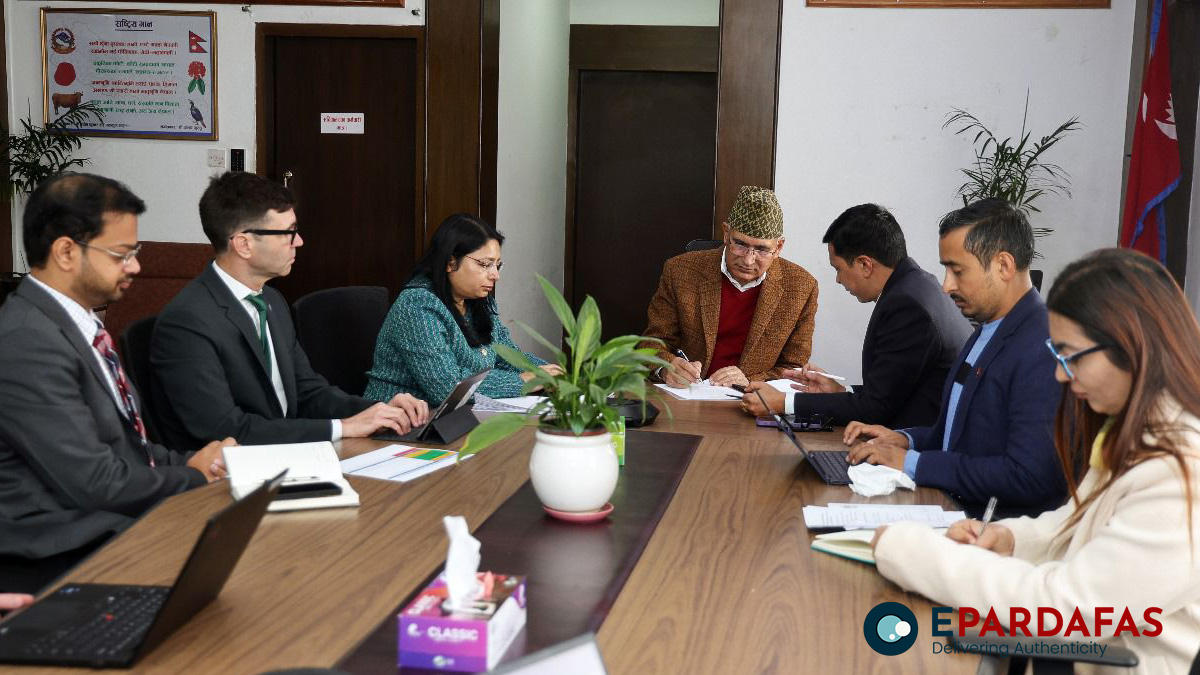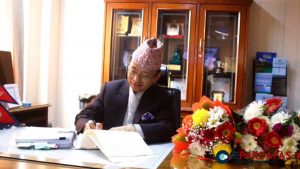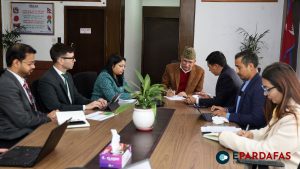A delegation from the International Monetary Fund (IMF), led by Sarwat Jahan, met with Deputy Prime Minister and Finance Minister Bishnu Prasad Paudel today at the Finance Ministry in Singha Durbar. The visit focuses on reviewing Nepal’s progress under the Extended Credit Facility (ECF) program provided by the IMF.
During the meeting, Minister Paudel highlighted recent signs of economic recovery in Nepal, expressing optimism that ongoing improvement efforts would yield further positive outcomes. He reiterated the government’s readiness to address economic challenges through legal measures, policy reforms, and dialogue, while emphasizing Nepal’s commitment to economic resilience.
Paudel assured the IMF team that recommendations from international partners would be considered and implemented in line with Nepal’s national priorities and needs. Stressing the importance of the fifth IMF review, he urged the team to hold further discussions on strategies to improve the economy, while reaffirming the government’s focus on policy and structural reforms to address financial challenges.
The Finance Minister expressed appreciation for the IMF’s support and suggestions, noting that policy reforms are essential for strengthening the economy in the long term. He assured that reform programs would be implemented according to Nepal’s specific requirements.
The IMF team acknowledged ongoing efforts and indicated that they were assessing the impact of past reforms while preparing for future initiatives. The review aims to ensure that Nepal’s economic development policies and strategic plans remain timely and effective.
Nepal secured an ECF of $371.6 million in January 2022, prompted by a sharp decline in foreign exchange reserves and a weakening balance of payments. This ECF, equivalent to 180% of Nepal’s Special Drawing Rights (SDR) quota, was designed to stabilize the economy and support fiscal discipline.
In previous reviews, the IMF flagged challenges including political instability, low capital expenditure implementation, and banking risks. It emphasized the need to strengthen Nepal’s financial system, enhance fiscal discipline, increase capital expenditure, and combat money laundering to ensure long-term economic stability.
The ongoing discussions aim to address these issues and refine strategies for sustained economic growth in Nepal.














Comments